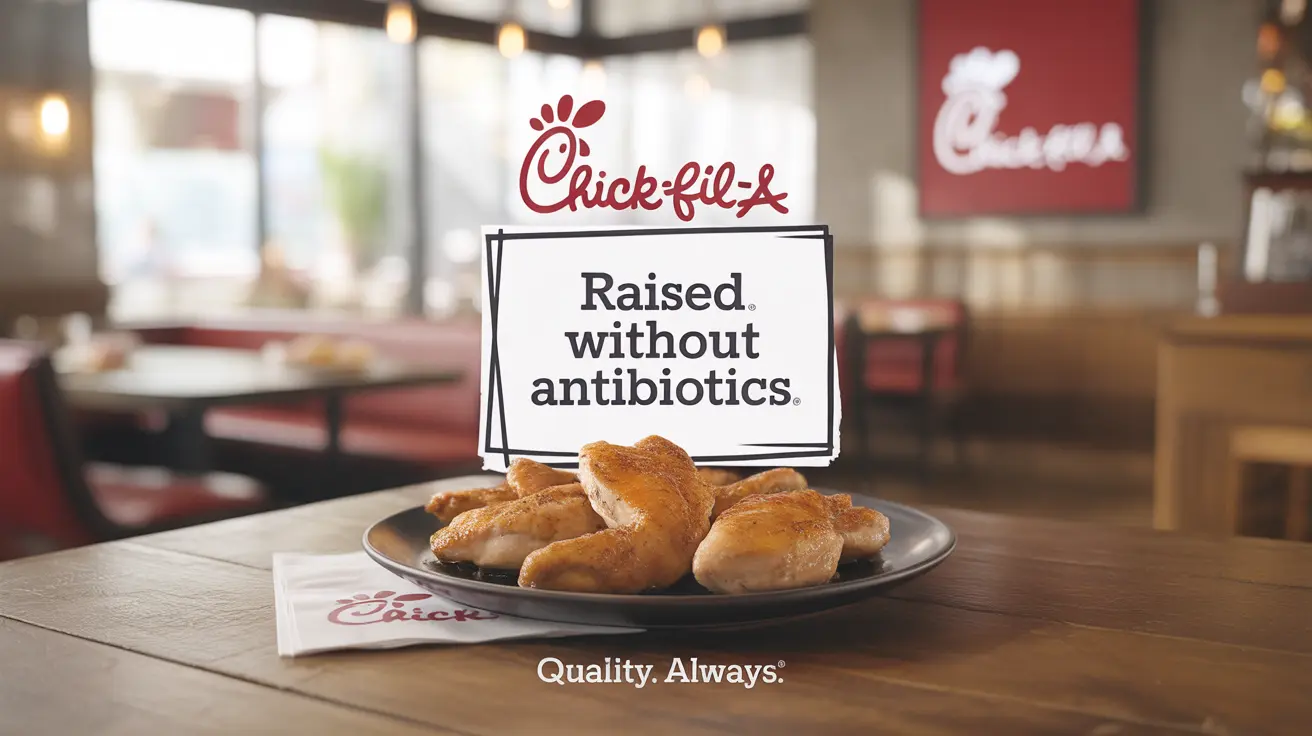Recent changes to Chick-fil-A's chicken sourcing policies have sparked discussions about food safety and antibiotic use in the poultry industry. The restaurant chain's decision to modify its antibiotics stance represents a significant shift from its previous "no antibiotics ever" policy, leaving many customers with questions about what this means for their health.
This comprehensive guide examines the changes in Chick-fil-A's antibiotics policy, its implications for consumers, and the broader context of antibiotic use in poultry farming.
Understanding the Policy Change
Chick-fil-A has updated its chicken sourcing policy to allow the use of certain antibiotics in their poultry supply chain. This marks a departure from their previous commitment to exclusively source chickens raised without any antibiotics. The new policy permits the use of specific antibiotics that are approved for animal health but aren't considered critical for human medicine.
Types of Antibiotics Allowed Under the New Policy
Under the revised guidelines, Chick-fil-A now permits:
- Animal-only antibiotics that aren't used in human medicine
- Specific antibiotics for treating sick birds
- Preventive antibiotics in certain circumstances
However, the company maintains strict restrictions on using antibiotics that are crucial for human medical treatment.
Impact on Food Safety and Quality
The modification in antibiotic policy doesn't necessarily indicate a decrease in food safety standards. All chicken served at Chick-fil-A must still comply with strict FDA regulations regarding antibiotic use in food animals. The company continues to maintain rigorous quality control measures, including:
- Regular testing for antibiotic residues
- Strict adherence to withdrawal periods
- Comprehensive supplier monitoring programs
- Quality assurance protocols
Industry Context and Market Realities
Chick-fil-A's policy shift reflects broader challenges within the poultry industry, including:
- Supply chain constraints
- Rising production costs
- Increasing demand for poultry products
- Animal welfare considerations
Consumer Options and Alternatives
Consumers who prefer strictly antibiotic-free chicken still have several options:
- Organic certified chicken
- Other restaurants maintaining "no antibiotics ever" policies
- Local farms with verified antibiotic-free practices
- Specialty grocery stores offering certified antibiotic-free options
Frequently Asked Questions
What does Chick-fil-A's new antibiotics policy mean for my health and the safety of their chicken?
The new policy allows for limited antibiotic use while maintaining strict food safety standards. All chicken must still meet FDA requirements, and antibiotics crucial for human medicine remain prohibited. The change doesn't compromise food safety but represents a modified approach to poultry sourcing.
Why did Chick-fil-A stop serving chicken raised without any antibiotics?
The decision was influenced by supply chain challenges, market demands, and the need to balance animal welfare with production capabilities. The change allows for more sustainable chicken sourcing while maintaining high food safety standards.
Are there any health risks linked to eating Chick-fil-A chicken now that they allow some antibiotics?
There are no additional health risks associated with the new policy. All chicken must still meet strict FDA guidelines, including mandatory withdrawal periods ensuring no antibiotic residues remain in the meat. The antibiotics permitted are carefully selected to avoid impact on human health.
How is Chick-fil-A's current chicken different from true "antibiotic-free" chicken, and can I still buy completely antibiotic-free chicken?
Chick-fil-A's chicken may now receive certain animal-only antibiotics, unlike "antibiotic-free" chicken which receives no antibiotics ever. Consumers can still purchase completely antibiotic-free chicken through organic certified providers, specialty retailers, and other restaurants maintaining "no antibiotics ever" policies.
What steps is Chick-fil-A taking to prevent antibiotic-resistant bacteria in their chicken supply?
Chick-fil-A maintains strict protocols including prohibiting the use of antibiotics critical to human medicine, implementing comprehensive testing programs, and working with suppliers to ensure responsible antibiotic use. They also continue to monitor and adjust their policies based on scientific evidence and industry best practices.




